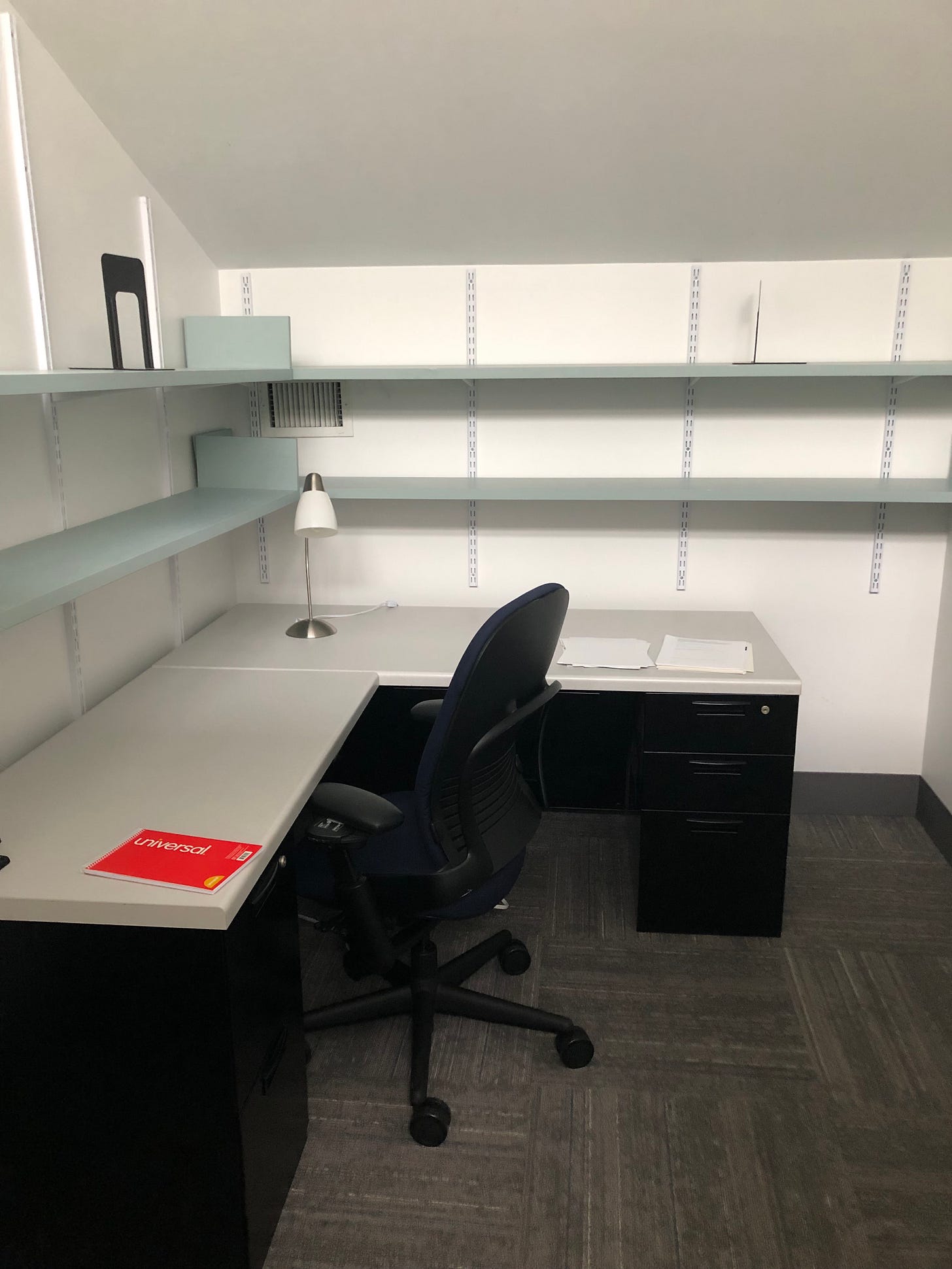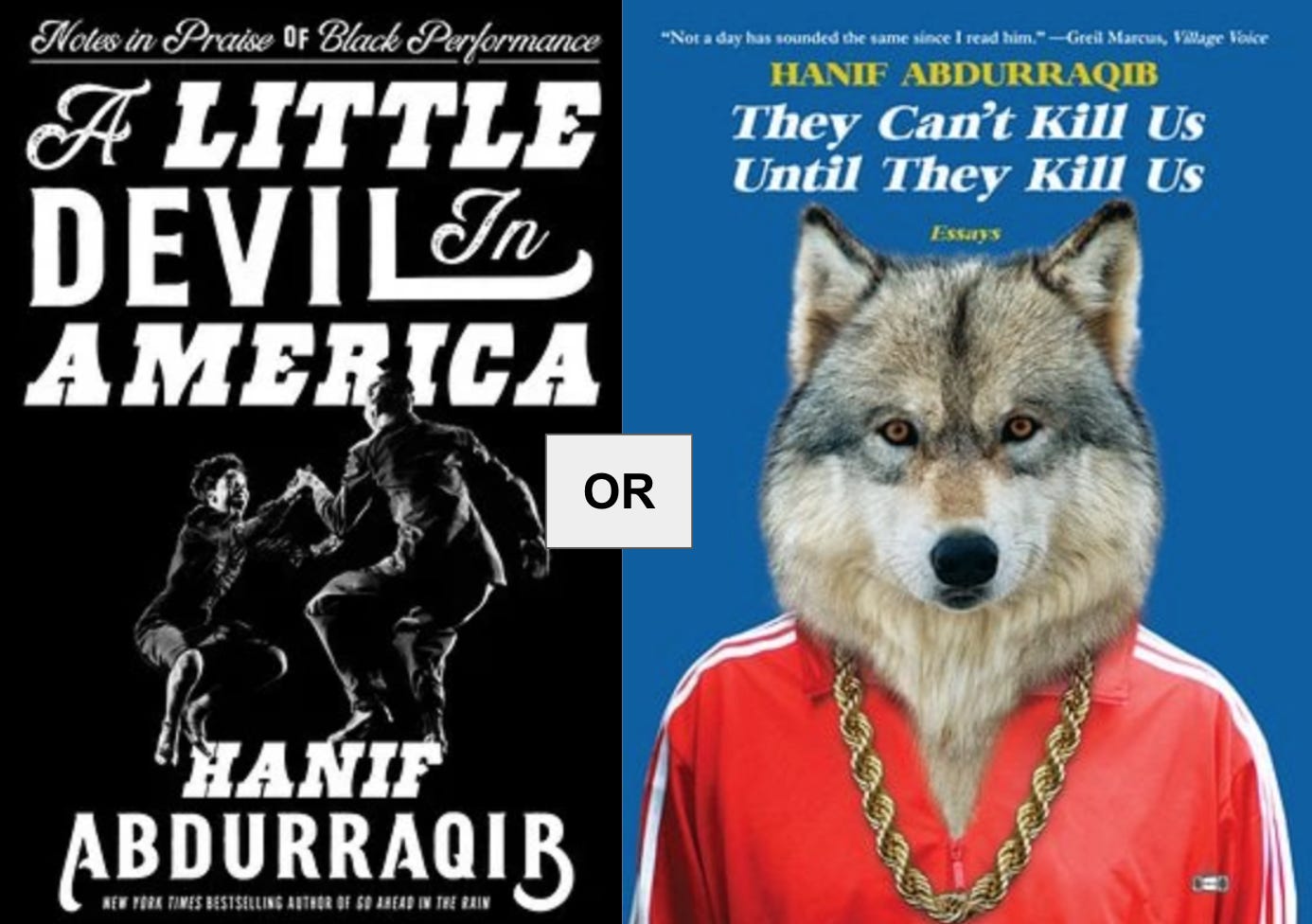Hi there! 👋 I’m Ida, and this is tiny driver, a newsletter about research, pedagogy, culture and their intersections. Thank you for being here. Reach out anytime by just hitting reply, I love hearing from you.
Hello, and happy Monday. I hope that you enjoyed Au-guest month as much as I did! It was so wonderful getting to feature some folks I love to read, and I hope that you enjoyed their letters as much as I did. ☺️
I'm writing to you for the first time from my apartment in Massachusetts! The move went as well as it could have gone, and just last week I got the keys to my new office. 😍 It was quite overwhelming and jarring to be on a new campus when I barely stepped foot onto the last one, but here we are. Feel free to leave a comment or hit reply to this email if you have any tips on how to make my office a cute & cozy space for creativity! Hoping to give y’all a look at the “after” a little later next month.
What I write.
Because I've been in the process of moving, the only real engagement I've had with my writing practice is reading for the tiny driver book club. Reading and discussing Louise DeSalvo's Writing as a Way of Healing was just what I needed, though, to get myself excited about the ritual and work of writing again. And a big shout out and thank you to those who attended the August book club—I am still sitting with and reflecting on our amazing discussion! 💞
The main purpose of the next two years is giving myself time and recognizing that I have it. In academia (at least, in the humanities), a postdoc is ideally meant to be a position where the responsibilities of teaching are greatly lowered so that one has more time to dedicate to research and writing. Last year, I was teaching four courses a year, and this year I am teaching only one during the Spring term. This means that I have time. Time to write and revise my book manuscript, time to grow into my ideas and ambitions, maybe even time to start a new line of research. More importantly, though, it means time to really reflect on the course in front of me—on what I want this project to mean to me.
While the main thrust of DeSalvo's book was writing as a way of emotionally healing from the trauma of our past, so much of the book argues for how closely connected who we are as writers is to who we are as people. Whether we write memoir or fiction or scholarship, our individual humanity is embedded in the words we choose, the sentences we put together, the story we tell. It is a mode of survival. It is "art for the sake of life.”
Despite the important role that writing has in restoring one's self, so much of our work has to with a larger sense of collective processing and accountability. One of the lines that continues to stay in my head is a piece of advice that DeSalvo gives on how writers become "self-caring, authentic, emotionally intelligent, and truly successful...[R]emain politically aware and involved so that you and your work stay connected to something beyond your own self-interest.
When I met with one of my mentors a week ago, he mentioned that I still hadn't reflected on the question, "Why me? Why am I the one to write this book?" As soon as he said that, I immediately connected it to DeSalvo's work. While I'm still processing this question and writing through my feelings, I know that this book is inextricably linked to me, my family, and a community I have no way of really recouping. More than that, the work I do on the Iranian diaspora in the United States is deeply tied to how US empire operates and how the racialization of people from Southwest Asia/North Africa converge and diverge with other post-1965 immigrant groups. Especially now, as the reality of US interference in Afghanistan is coming further into relief, so much of what I write about gives us a sense of how we got to where we are today. Part of what sustains me is giving a vocabulary and a narrative to the most innocent of questions I had growing up in a post-9/11 world—those that to haunt the cultural objects I choose to explore and documents that have jumped out at me in the archive.
May we all start the month feeling like we have the time to explore the connections between ourselves and our craft.
If you'd like to take a look at my notes from the book, feel free to check them out here.
What I consume.
In the bookshop:
Currently Reading: Parable of the Talents by Octavia Butler
On deck: How to Cure a Ghost by Fariha Róisín
Friends! It is time for the next book club pick! Cast your vote below by Saturday, September 11 and I’ll announce the pick in next week’s newsletter. A big thank you to Lydia F. for suggesting A Little Devil in America and Stephanie W for They Can’t Kill Us Until They Kill Us—such a joy knowing that no matter what, I’ll be reading Hanif Abdurraqib this month!
Which book do you want to read for September book club?
Here’s the event info:
Date & Time: Tuesday, September 28 @ 5PM PST/8PM EST
Registration Link!
Suggested donation (for those able to donate): $3-20 through Paypal or Venmo (@idyalz)
Item(s) of note.
A primer on self-soothing vs. self-care vs. community care
Rest as a Portal for Healing from the Minneapolis Institute for Art
The intersection between civilian surveillance and the carceral state
A pup-date.
Mr. Higgie Pants is very sleepy these days. It must be from all the playing he’s been doing.
As always, thanks so much for reading through, and I'll see you in the next one!
Warmly,
Ida





